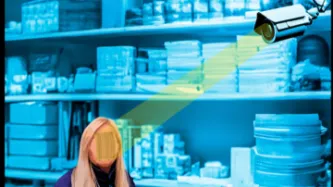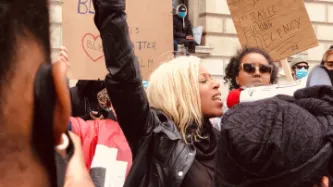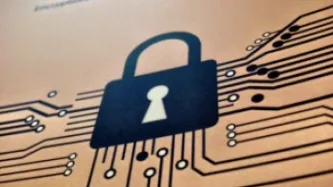Search
Content type: Long Read
Period tracking apps and the rollback of reproductive rightsThe aftermath of the overturning of Roe v. Wade in the United States (US) sparked widespread debate and concern that data from period tracking apps could be use to criminalise those seeking abortion care.While the surveillance and criminalisation of reproductive choices are neither new nor unique to the US, the scale and intensity of today’s crisis continue to grow. To put it into perspective, 22 million women and girls of reproductive…
Content type: Press release
9 November 2023 - Privacy International (PI) has just published new research into UK Members of Parliament’s (startling lack of) knowledge on the use of Facial Recognition Technology (FRT) in public spaces, even within their own constituencies. Read the research published here in full: "MPs Asleep at the Wheel as Facial Recognition Technology Spells The End of Privacy in Public".PI has recently conducted a survey of 114 UK MPs through YouGov. Published this morning, the results are seriously…
Content type: Examples
US Customs and Border Protection Data show that the Department of Homeland Security deployed helicopters, airplanes, and drones over 15 cities, including New York City, Buffalo, Dayton OH, and Philadelphia, where demonstrators assembled to protest the killing of George Floyd and collected at least 270 hours of video surveillance footage. That deployment, which sparked a congressional inquiry, was only part of a nationwide operation that repurposed resources usually sent to the US border to find…
Content type: Examples
According to records obtained under a freedom of information request, the San Francisco Police Department used the camera network belonging to downtown Union Square Improvement District to spy on protesters during the end of May and early June 2020. The high-definition cameras, manufactured by Motorola brand Avigilon, can zoom in on a person's face and are linked to a software analysis system. Motorola is expanding its tool lineup to make it easier for police to gain access to private cameras…
Content type: Examples
When Dallas police posted on Twitter asking for videos of the protests taking place after George Floyd's killing, a flood of videos and images of K-pop stars were uploaded to its anonymous iWatch Dallas tip-off app. Law enforcement can call on vast numbers of networked cameras - from cars, food and retail chains that are typically willing to share with police, law enforcement agencies' own networks of surveillance and body cameras as well as object and face recognition software, protesters and…
Content type: Examples
Despite having promised in 2016 not to facilitate domestic surveillance, the AI startup Dataminr used its firehose access to Twitter to alert law enforcement to social media posts with the latest whereabouts and actions of demonstrators involved in the protests following the killing of George Floyd. Dataminr's investors include the CIA and, previously, Twitter itself. Twitter's terms of service ban software developers from tracking or monitoring protest events. Some alerts were sourced from…
Content type: Examples
Hundreds of emails and documents obtained in response to a freedom of information request by BuzzFeed News show that US federal agents monitored social media for information on planned Black Lives Matter demonstrations in Minneapolis, Washington DC, Los Angeles, and other cities. Researchers and activists (such as EFF) warned that technology-driven surveillance of protesters could set a dangerous precedent and chill assembly and speech, particularly in the case of Black Lives Matter. The…
Content type: Examples
Human rights activists and Democratic members of the US Congress wrote to top law enforcement officials in the Trump administration to demand they cease surveilling Americans engaging in peaceful protests. Trump and others in his administration called those protesting the killing of George Floyd "domestic terrorists" and "anarchists". Recent efforts to surveil Americans have included facial recognition, automated licence plate readers, and Stingrays, as well as spy planes and drones.
https://…
Content type: Examples
During the Black Lives Matter protests of summer 2020, US police took advantage of a lack of regulation and new technologies to expand the scope of people and platforms they monitor; details typically emerge through lawsuits, public records disclosures, and stories released by police department PR as crime prevention successes. A report from the Brennan Center for Justice highlights New York Police Department threats to privacy, freedom of expression, and due process and the use of a predator…
Content type: News & Analysis
For the past few weeks, people across the world, starting in the US, have taken to the streets to protest the murder of George Floyd, a victim of police brutality. The protests, which are organised by and in support of the Black Lives Matter movement have also become a platform to protest against state sponsored violence and systematic racism against black people.
The majority of articles and media focus have so far focused on what happens during the protest, namely an increasingly militarised…
Content type: Examples
The French telecom operator Orange is repurposing its 2013 Flux Vision, which allowed cities and tourist destinations to see their visitors' travel flows, to answer European Commissioner Thierry Breton's call for the EU's mobile operators to provide their location data to fight the pandemic through population monitoring. The French data protection regulator, CNIL, is suggesting that the data is anonymised and therefore legal to use. However, in order to provide the service Orange must first…
Content type: Examples
To contain the coronavirus, Vietnam focused on aggressive contact tracing, forced quarantines for all people arriving in the country, cancelling all foreign flights, conscripting medical students and retired doctors and nurses, instituting surveillance, and mobilising medical and military personnel as well as its national network of informants. As of March 24, the country had reported 123 confirmed cases and no deaths; as of March 20 the country had tested 15,637 people. About 800 people have…
Content type: Long Read
Image credit: Emil Sjöblom [ShareAlike 2.0 Generic (CC BY-SA 2.0)]
Prepaid SIM card use and mandatory SIM card registration laws are especially widespread in countries in Africa: these two factors can allow for a more pervasive system of mass surveillance of people who can access prepaid SIM cards, as well as exclusion from important civic spaces, social networks, and education and health care for people who cannot.
Mandatory SIM card registration laws require that people provide personal…
Content type: News & Analysis
We do agree with Ramon Fonseca about one thing: that “Each person has a right to privacy, whether they are a king or a beggar.”
But that’s where our commonality with co-founder of disgraced Panama law firm Mossack Fonseca ends.
Last year, a whistleblower leaked 11.5 million documents about the firm’s business brokering offshore companies, details of which were published yesterday. Reportedly the largest leak in journalistic history, the cache reveals hidden assets by a dozen current and…
Content type: News & Analysis
A groundbreaking report released today by the UN Special Rapporteur on freedom of expression, David Kaye, calls on states to ensure security and privacy online by providing “comprehensive protection” through encryption and anonymity tools, warning that blanket measures to restrict online privacy fail to comply with human rights norms.
To support the findings contained in the Special Rapporteur's report, Privacy International, the Harvard Law School's International Human Rights Law…




